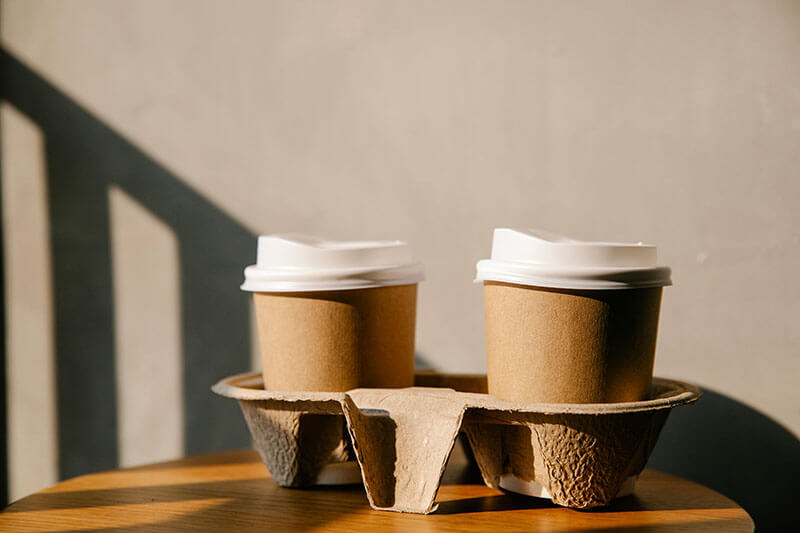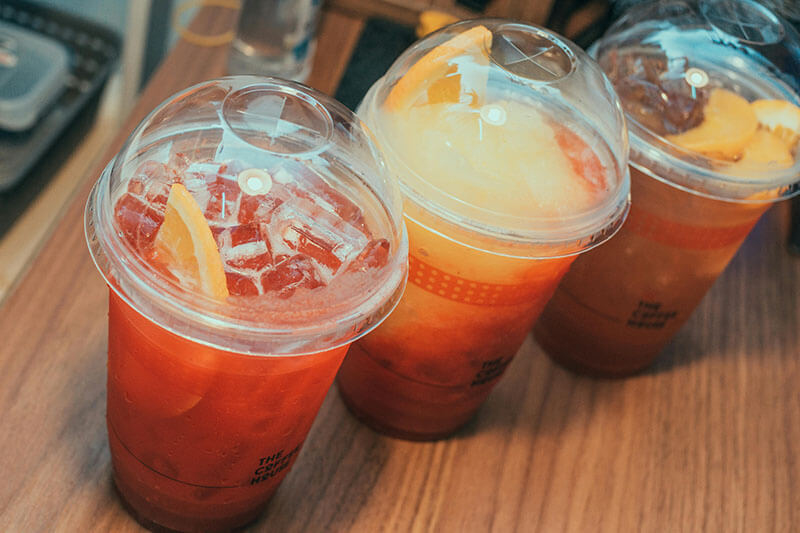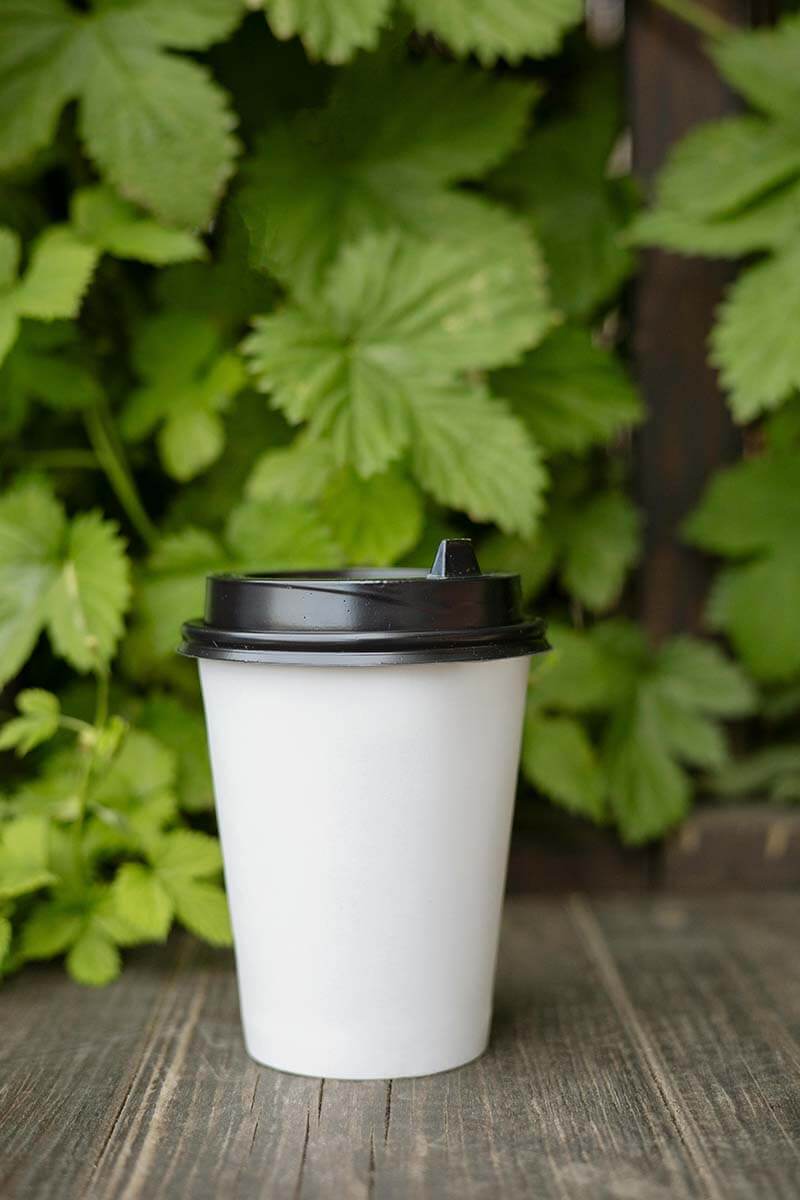Your Best Guide to Compostable Cold Cups and Lids

The beverage industry has driven the growth of disposable cups, but plastic pollution has triggered a global environmental crisis, making sustainable disposable cups become imperative. The emergence of compostable cold cups and lids solves this problem, meeting market demand while also solving environmental pollution issues. Today, let’s take a deeper look at this topic.
What Are Compostable Cold Cups and Lids?
The creation of compostable cold cups and lids are to break down into natural components in a composting environment without leaving any harmful residues. Compared to the traditional plastic, which need to take hundred years to decompose. The compostable cold cups and compostable lids can break down within a few months under the right composting conditions.
Types of Compostable Materials
When we talk about compostable cups, we must need to understand what materials are used to produce them. Currently, the compostable cups with lids selling on the market are mainly made of the following materials.
- PLA (Polylactic Acid): PLA cups are made from corn starch. Due to their appearance is clear and their rigidity, these cups are suitable for cold beverages and widely used in cafes and restaurants.
- Bagasse: Bagasse cups are made from sugarcane pulp. The compostable drink cups made from this material is sturdy, biodegradable, and compostable, suitable for both hot and cold drinks.
- Paper: If the paper cups are coated with biodegradable coatings, then these cups are compostable. They are generally used for serving cold drinks with various printed patterns on the outer surface of the cup.
- Recycled Materials: There are also some manufacturers are exploring to use the recycled paper and plant-based materials to create compostable cups. If this method can be mass-produced, it will not only reduce waste but also promote a circular economy.
Benefits of Compostable Cold Cups and Lids
If using the compostable material to produce the disposable cups to instead of the plastic material, this will benefit a lot from many aspects.
Environmental Impact
The compostable cups have a great impact on the environment, they can not only break down into organic matter, enrich the soil health, and promote plant growth to supports local agriculture and food systems, but also reduce the landfill waste, and lower greenhouse gas emissions.
Consumer Preferences
Consumers today are willing to pay a premium for sustainable products, so using compostable cups with lids can help your brand stand out in a competitive environment and win recognition from more and more environmentally conscious consumers.
Business Advantages
From the perspective of business operations, using compostable drink cups also has the following advantages.
- Reduced Waste Disposal Costs: Use compostable materials can reduce the waste disposal costs for businesses, they can be processed with organic waste together.
- Enhanced Brand Reputation: It is easier to gain customer trust and loyalty with a sustainable company and brand image.
- Compliance with Regulations: More and more countries and cities are now implementing plastic bans, so using compostable cups can help you avoid potential fines.
Concerns for Compostable Cups with Lids Wholesalers
The wholesalers are one of the buyers of disposable drinking cups, so if the material changed from traditional plastic to compostable material, here are their concerns.

Sourcing and Supply Chain
The wholesalers have worked with the plastic cup manufacturer before, so when they need to change to new materials, they have to find a new cup supplier that is made from compostable materials. Looking for new suppliers and establishing strong relationships with them can help you to reduce purchasing costs and risk.
Cost Considerations
Compared to the traditional plastic cups, the price of compostable cups is higher. Wholesalers can purchase in bulk quantities to reduce the purchasing cost. You can also educate the customers about the long-term benefits of compostable products, which can also help justify the price difference.
Product Quality and Performance
The same, for the wholesalers who just contact with the compostable drink cups, they need to ensure the supplier’s product quality. So, they can ask the supplier to send some cup and lid samples to test the durability, temperature resistance, and leak-proof capabilities.
Market Competition
Due to the demand for compostable products grows, market competition is becoming increasingly fierce, wholesalers can provide unique products with customized services to win the market.
Concerns for Brand Buyers
For the brand buyers, their purchasing quantity may not be bigger than the wholesalers, but their concerns are slightly different from the wholesalers.
Regulatory Compliance
The brand buyer needs to understand the complex landscape of regulations about compostable products to avoid potential legal issues. If local policies change, you should communicate with your suppliers in a timely manner.
Consumer Education
Whether you are operating a cafeteria, restaurant, or coffee shop, you can educate customers about compostable products through in-store displays, social media, or brochures.
Brand Image and Marketing
Compostable products can help you establish your brand as a sustainable business in front of consumers. As part of your marketing strategy, you can promote it in your store ads and on social media.
Inventory Management
Since the consumption of each restaurant is different, when a restaurant purchases compostable cups with lids, it should always pay attention to whether there is enough inventory to support your purchasing cycle until the next batch of compostable cups arrives. Therefore, the inventory management of the restaurant is not only important in terms of food but also in terms of these consumables.
Concerns for Consumers
As the ultimate payers of the entire consumer economy, consumers have also seen many subtle but important changes in their lives as they switch from traditional plastic cups to compostable drink cups.

Understanding Compostability
For consumers, they are not as professional as manufacturers and buyers, they even don’t know what is compostable, especially for the PLA cups, they are also look like clear cups, so consumers can not distinguish whether they plastic cups or compostable cups. So, as a brand or drink seller, you are responsible for educating the consumers on the materials of the disposable cups and lids and telling them how to properly dispose of these products.
Availability and Accessibility
For some consumers who are very environmentally conscious, they may not be able to buy drinks in compostable cups. Because the supply of compostable cups with lids is still not as common as plastic cups or foam cups, retailers need to increase their expansion in this market.
Price Sensitivity
Compared to plastic cups, the cost of compostable drink cups is higher, which will lead to an increase in the price of drinks purchased by consumers, so some consumers may not accept this point. The businesses need to communicate the long-term environmental benefits and value of these products to justify the price difference.
Misconceptions about Compostable Products
In fact, for environmentally friendly disposable cups and lids, there are not only the conception of compostable but also biodegradable. Consumers are likely to confuse the concepts between the two, so the business can adopt marketing campaigns to educate consumers on the differences between compostable and biodegradable products can help clarify their benefits and proper disposal methods.
The shift toward compostable cold cups and lids is not just a trend, but also the necessary means to protect the environment. Eco March is the manufacturer of compostable products, including disposable cups and lids, if you plan to wholesale compostable cups with lids, we will be your best choice!
You may also interested in:

John Q
John Q is Eco March’s Product Manager. With 5 years of prior experience in the food industry after graduating from university, he has been an integral part of Eco March. He excels in creating and developing eco-friendly food packaging products with a keen focus on enhancing the consumer experience.


